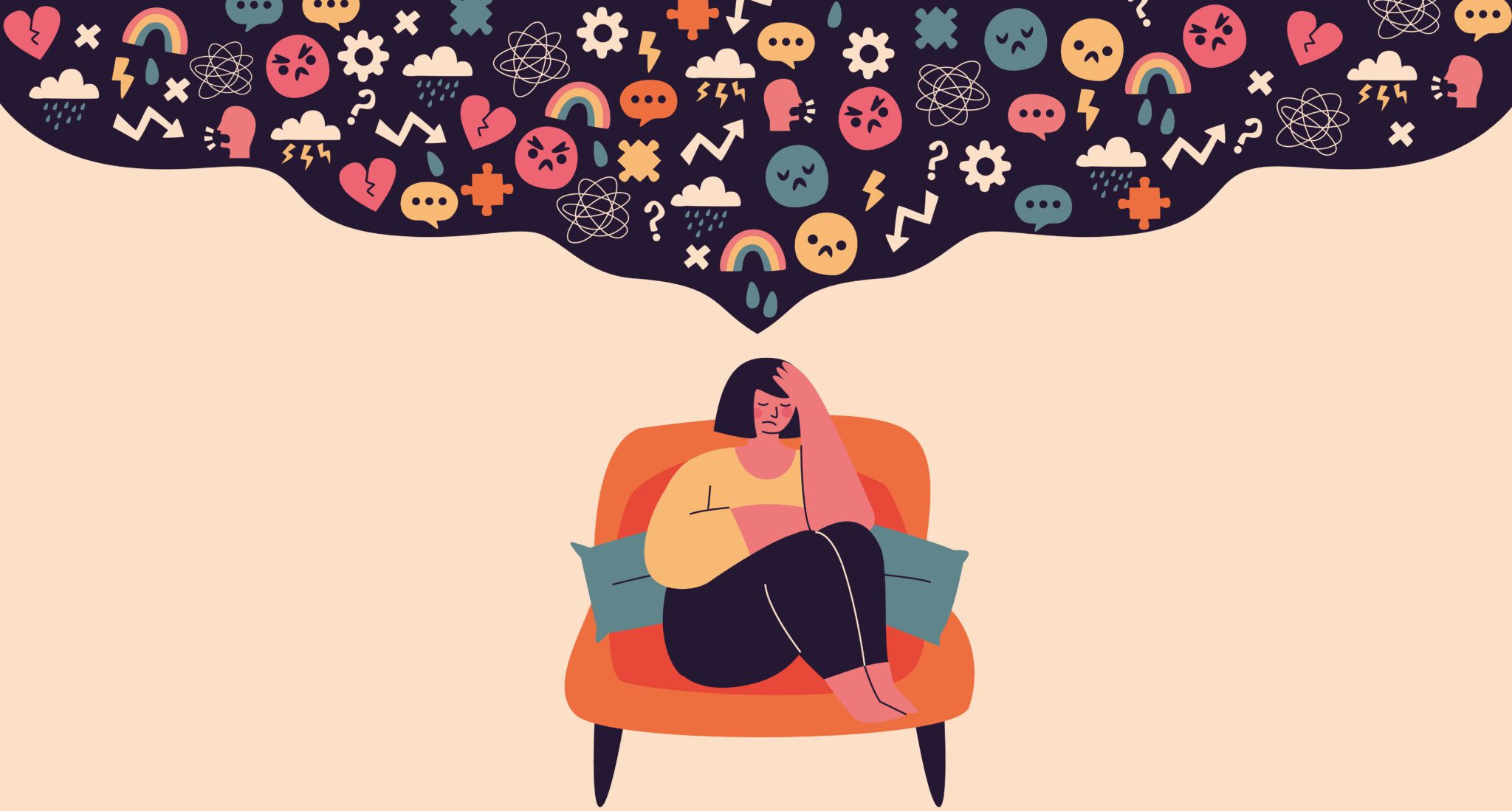Information from the Anxiety & Depression Association of America tells us that anxiety affects 40 million adults in the United States every year. Between 2007 and 2012, anxiety disorders in children and teens increased 20 percent globally and affected 31.9 percent of adolescents between 13 and 18 years in 2021, according to the World Health Organization.
That’s alarming.
What’s causing all this anxiety in our kids and adults?
Let’s look at what the science says.
You Have Anxiety Because You Have a Complex Brain
Anxiety is actually a highly evolved capability of your big, complex brain. Your brain’s prefrontal cortex, behind your forehead, developed the ability to problem-solve and, the limbic system, the fear center, became an expert trend-spotter, idea-connector, and pattern-finder. When something threatening or painful happens, your limbic system analyzes everything that led up to it and tries to spot a pattern — to avoid it in the future. To do this, the limbic system attempts to connect the “bad thing” to something in your brain’s memory. When your brain thinks it might encounter a “bad thing” again, anxiety results as your brain attempts to problem-solve how to avoid the potential future threat.
Initially, anxiety is just your brain doing its job trying to keep you safe, and it’s usually connected to something specific. Over time and with repetition, anxiety can become a habitual brain pattern. Through associative learning from experience, your brain learns to connect thoughts and events with fears and negative feelings. The associated items, which may have initially had nothing to do with each other, become connected in your neural web, and your limbic system activates the brain’s fear response whenever you think about them.
When this happens, you can become unable to shift gears mentally, and you may get stuck on a loop of thoughts, feelings, or bodily sensations that cause or exacerbate feelings of anxiety. After a while, instead of stressing about a particular issue, anxiety can become a near constant feeling and brain state accompanied by the corresponding chemicals, brainwaves, and symptoms.
This How Anxiety Affects Your Body
Because anxiety triggers the fear/stress response, your brain and body release stress hormones. While the stress response does serve a useful purpose, it was meant to be activated infrequently to help you survive infrequent life or death situations. Being in a continual state of stress long-term has negative consequences for your body and harms your physical brain and its functioning.
Chronic stress makes you forgetful and emotional, increases your susceptibility to anxiety, depression, Alzheimer’s, and many other mental illnesses, and it physically damages your brain. In the brain, anxiety usually shows up as decreased alpha waves, increased beta waves, and low delta and theta waves.
In the body, when the brain sounds the stress alarm, your autonomic nervous system produces the classic bodily fear responses: thumping heart, skyrocketing blood pressure, and rapid breathing. Your adrenal glands pump out adrenaline, glucose is released into your bloodstream, and cortisol floods your system. While a boost of these chemicals would definitely help you outrun or fight a predator, it’s not helpful to have a surplus of these substances coursing through your veins regularly. Other chemicals in your body that may get involved in anxiety include serotonin, dopamine, norepinephrine, and gamma-aminobutyric acid (GABA).
So, chemicals contribute to keeping anxiety going in your brain and body, but that’s only one part of the story.
The Answer to Decreasing Anxiety Is In Your Brain
While you feel the effects of anxiety all over your body, it begins in your brain and can end there. The answer to easing and reversing anxiety is to turn down your brain’s stress response and strengthen your brain’s relaxation response. Technically, your brain needs to increase its slow wave activity and engage the parasympathetic nervous system so your mind and body can become less aroused and reactive.

There are many ways you can encourage your brain to increase the production of alpha waves and calm anxiety naturally. Neurofeedback is one of those. Neurofeedback is a way of improving anxiety at the source, in your brain, permanently and without medication. Research shows that neurofeedback successfully trains your brain to decrease the activation of the amygdala so that it doesn’t initiate the stress response as often. And it increases the connectivity and ability of your intelligent brain, the prefrontal cortex, to calm and regulate your brain and body.
How Does Neurofeedback Ease Anxiety?
Neurofeedback is a non-invasive therapy, where a person learns to influence their body’s autonomic nervous system at a subconscious level to permanently alter their brainwaves. Neurofeedback has been around since the 1950s and is a reputable, scientifically proven modality administered by trained practitioners.
In a training session, EEG sensors are placed on the scalp, which read the electrical activity of the brain. Brainwaves are monitored by a computer which gives real-time feedback to the person training in the form of an auditory or visual reward, like music or a video game. With consistent repetition, the brain learns subconsciously, through operant conditioning, and makes permanent physiological changes to function more optimally. The altered operation continues after the training.
Neurofeedback can calm your brain’s stress response and teach it to increase the production of calming brain waves permanently. Calm and less anxious can become the default state for your mind and body.
Conclusion
As you may know all too well, anxiety can hijack your mind and show up as physical symptoms, including digestive disorders, memory loss, headaches, chest pain, numbness, dizziness, and more. Neurofeedback successfully decreases the symptoms of anxiety and many other conditions, including depression, autism, ADD and ADHD, brain injuries, OCD, stroke recovery, PTSD, addictions, seizure disorders, migraines, chronic pain, and more.
At Grey Matters of Carmel, we are passionate about helping people live their best lives. Give us a call at (317) 215-7208 or send us a message today to find out how we can help you.
Photo Credit:
Top image by pikisuperstar on Freepik
Second photo by Vitalii Khodzinskyi on Unsplash


